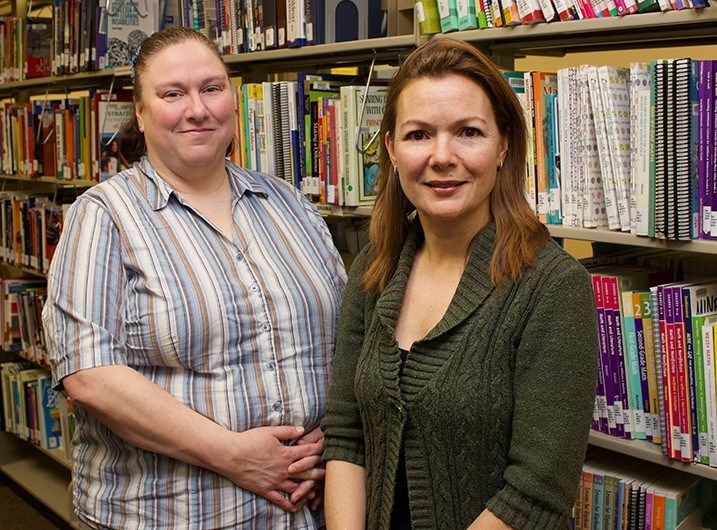Lakehead University will showcase the best of student and faculty research during Research & Innovation Week 2020, March 9 to 11. Over the next few days, OrilliaMatters will be featuring some of the faculty researchers at the University’s Orillia Campus.
For a full calendar of events happening during Research & Innovation Week, click here. Events are free and open to the public. All events take place at the Orillia Campus at 500 University Ave.
---
How do you come back to calm? This question is the powerful message driving a new community-based project by Lakehead University professors Drs. Sonia Mastrangelo and Meridith Lovell-Johnston.
Based in the Faculty of Education at the University’s Orillia campus, Mastrangelo and Lovell-Johnston use the concept of self-regulation to engage young children in learning and literacy.
Over the next three years, they’re working in partnership with six First Nations community schools in northern Ontario, focusing specifically on self-regulation in kids Kindergarten-age to Grade 3.
“As the foundation of healthy social development, self-regulation can be learned and is vital to helping us become resilient and cope with the stressors of daily life,” says Mastrangelo, a specialist in child exceptionality and self-regulation. “When our coping mechanisms are derailed, so is our ability to learn new skills, like reading and writing.”
“We always stress that self-regulation in the classroom is as important for teachers as it is for students,” adds Lovell-Johnston, whose expertise spans literacy, language learning and teaching methods. “Offering local teacher workshops and professional development is a key way we’ll support the development of self-regulation and practices that foster literacy and learning.”
Through classroom observation, interviews, focus groups, sharing circles and storytelling, the project will explore how to identify and reduce sources of stress and provide different strategies that help kids return to calm.
Anything from dimming lights, using lavender scents and offering safe spaces to regroup can all create stable, homeostatic classrooms says Mastrangelo, adding that what works for one child may not necessarily be effective for another.
While the current work is based in northern Ontario, Mastrangelo notes that the principles of self-regulation apply to any classroom, and any child. “It’s trial and error to find what works for each student, but they eventually learn to communicate and regulate their feelings independently, so that they can get back on track for learning.”
The children will also lend a hand in making videos, pictures and stories in English and their community language, Oji-Cree, that capture their experiences including “what makes them feel happy and safe and want to learn,” says Lovell-Johnston. At the end of the project, each child will have helped create their own e-book; a documentary-style film will also be produced and shared with the public and other education scholars.
Mastrangelo and Lovell-Johnston’s project launched in January of 2020 with the first of several planned spaghetti-dinner and information nights for parents, underscoring their community-led and partnership approach to setting research objectives and sharing knowledge.
“We work together to address challenges and offer supports in the places the communities themselves have told us they need it most,” says Mastrangelo. “This partnership work is essential to empower northern educators and communities to support their children with culturally relevant practices for lifelong learning, resiliency and achievement.”
Faculty of Education professors Drs. Mastrangelo and Lovell-Johnston work in partnership with the Kwayaciiwin Education Resource Centre in Northwestern Ontario community schools. Their three-year Partnership Development Grant is funded by the Social Sciences and Humanities Research Council.
